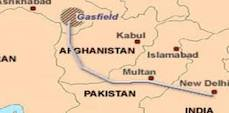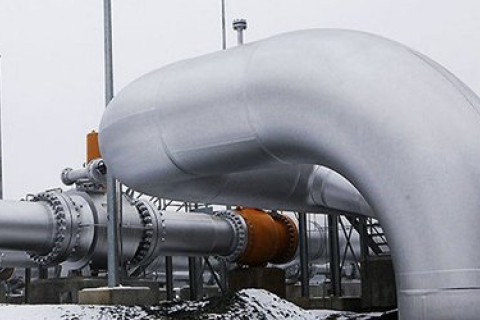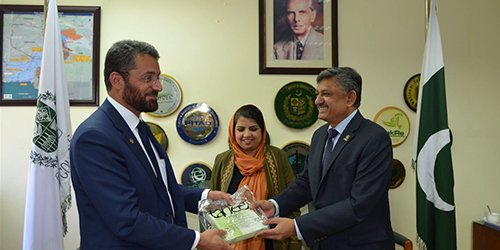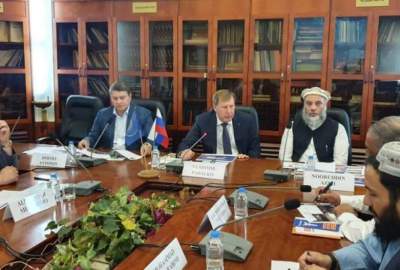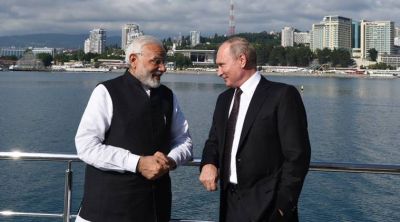India and Afghanistan failed on Tuesday to make progress on the issue of transit fee for the $7.6 billion Tapi (Turkmenistan-Afghanistan-Pakistan-India) gas pipeline which will pass through Afghan territory.
Publish dateWednesday 18 April 2012 - 08:54
Story Code : 40141
As a result, Pakistan and India also could not agree on the transit fee for the pipeline’s segment passing through Pakistan which has linked its fee structure with the India-Afghan agreement Dawn News reported.
Technical teams of the three countries held talks for two days.
For the pipeline, Afghanistan will charge Pakistan and India a transit fee and Pakistan will charge India the same amount.
Sources said the difference was just of 3 US cents per mmBTU (million British Thermal Unit) and could be settled anywhere in-between but would require political support from the Indian and Afghan leadership and “a push from the US” which was supporting the project.
The Afghan side demands 54 US cents per mmBTU but India has offered 44 cents and then raised it to 47 cents, but Kabul declined to agree on anything below 50 cents, the sources said.
But, the India team did not have the mandate to offer more than 47 cents. It was, therefore, agreed that the parties will hold another round of talks and in the event of their failure to reach an accord a pipeline steering committee led by the Asian Development Bank which is to meet in Ashgabat on May 6 will play the role of mediator.Pakistan has told the visiting delegations that instead of negotiating a separate transit fee it would accept the fee structure agreed upon by India and Afghanistan.
Pakistan has already cleared a formal signing of gas sales and purchase agreement (GSPA) with Turkmenistan. The agreement is expected to be signed by Turkmengaz and Interstate Gas Company in the first week of May.
Under the agreement, Turkmenistan will supply 1.3 billion cubic feet gas per day at a price equivalent to about 70 per cent of Brent Crude Oil price delivered in Multan.
The Economic Coordination Committee of the cabinet constituted a committee last week to analyse the cost of risk sharing for gas transportation through war-torn Afghan territory and the overall cost of pipeline project inside Pakistan.
The pricing formula finalised by India, Pakistan and Turkmenistan was based on common principles but the base price for India and Pakistan was different. In view of security situation in Afghanistan its reluctance to bear the risks involved, Turkmenistan and Pakistan had agreed to share the risk with an upper and lower limit of risk costs.
The ministerial committee will submit its report to a steering committee comprising federal ministers and the chief minister of Balochistan to examine risk-sharing and transportation costs, transit fee and gas price review mechanism.
The pipeline is expected to bring gas to Pakistan by December 2016, depending on a credible security apparatus in Afghanistan where it will provide 500mmcfd of gas.Turkmenistan also offered to increase the supply to about two billion cubic feet a day if the two sides agreed on transporting about 700 million cubic feet a day (mmcfd) to Gwadar port for eventual sale or export as liquefied natural gas.
Technical teams of the three countries held talks for two days.
For the pipeline, Afghanistan will charge Pakistan and India a transit fee and Pakistan will charge India the same amount.
Sources said the difference was just of 3 US cents per mmBTU (million British Thermal Unit) and could be settled anywhere in-between but would require political support from the Indian and Afghan leadership and “a push from the US” which was supporting the project.
The Afghan side demands 54 US cents per mmBTU but India has offered 44 cents and then raised it to 47 cents, but Kabul declined to agree on anything below 50 cents, the sources said.
But, the India team did not have the mandate to offer more than 47 cents. It was, therefore, agreed that the parties will hold another round of talks and in the event of their failure to reach an accord a pipeline steering committee led by the Asian Development Bank which is to meet in Ashgabat on May 6 will play the role of mediator.Pakistan has told the visiting delegations that instead of negotiating a separate transit fee it would accept the fee structure agreed upon by India and Afghanistan.
Pakistan has already cleared a formal signing of gas sales and purchase agreement (GSPA) with Turkmenistan. The agreement is expected to be signed by Turkmengaz and Interstate Gas Company in the first week of May.
Under the agreement, Turkmenistan will supply 1.3 billion cubic feet gas per day at a price equivalent to about 70 per cent of Brent Crude Oil price delivered in Multan.
The Economic Coordination Committee of the cabinet constituted a committee last week to analyse the cost of risk sharing for gas transportation through war-torn Afghan territory and the overall cost of pipeline project inside Pakistan.
The pricing formula finalised by India, Pakistan and Turkmenistan was based on common principles but the base price for India and Pakistan was different. In view of security situation in Afghanistan its reluctance to bear the risks involved, Turkmenistan and Pakistan had agreed to share the risk with an upper and lower limit of risk costs.
The ministerial committee will submit its report to a steering committee comprising federal ministers and the chief minister of Balochistan to examine risk-sharing and transportation costs, transit fee and gas price review mechanism.
The pipeline is expected to bring gas to Pakistan by December 2016, depending on a credible security apparatus in Afghanistan where it will provide 500mmcfd of gas.Turkmenistan also offered to increase the supply to about two billion cubic feet a day if the two sides agreed on transporting about 700 million cubic feet a day (mmcfd) to Gwadar port for eventual sale or export as liquefied natural gas.
Source : Afghan Voice Agency (AVA), International Service
avapress.com/vdcb88ba.rhbgape4ur.html
Top hits
